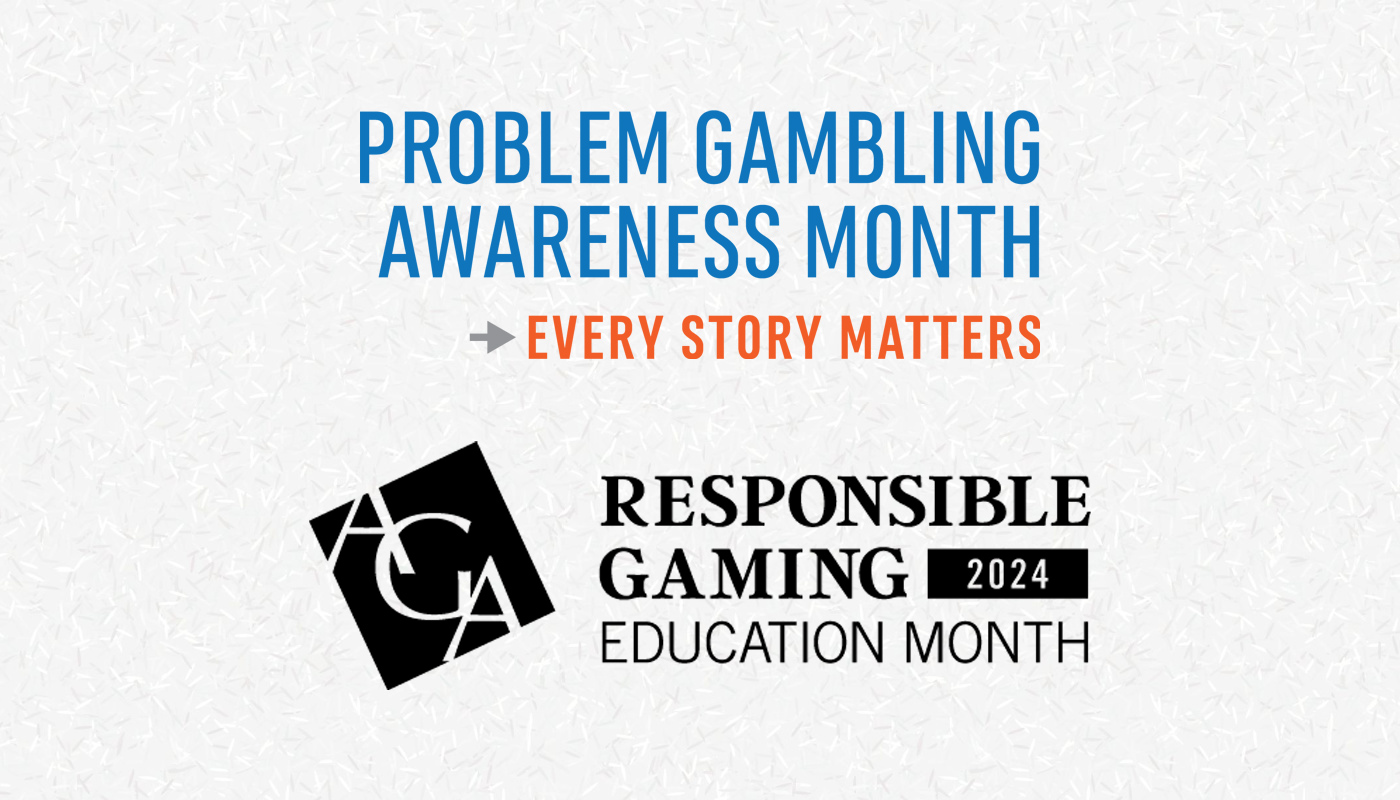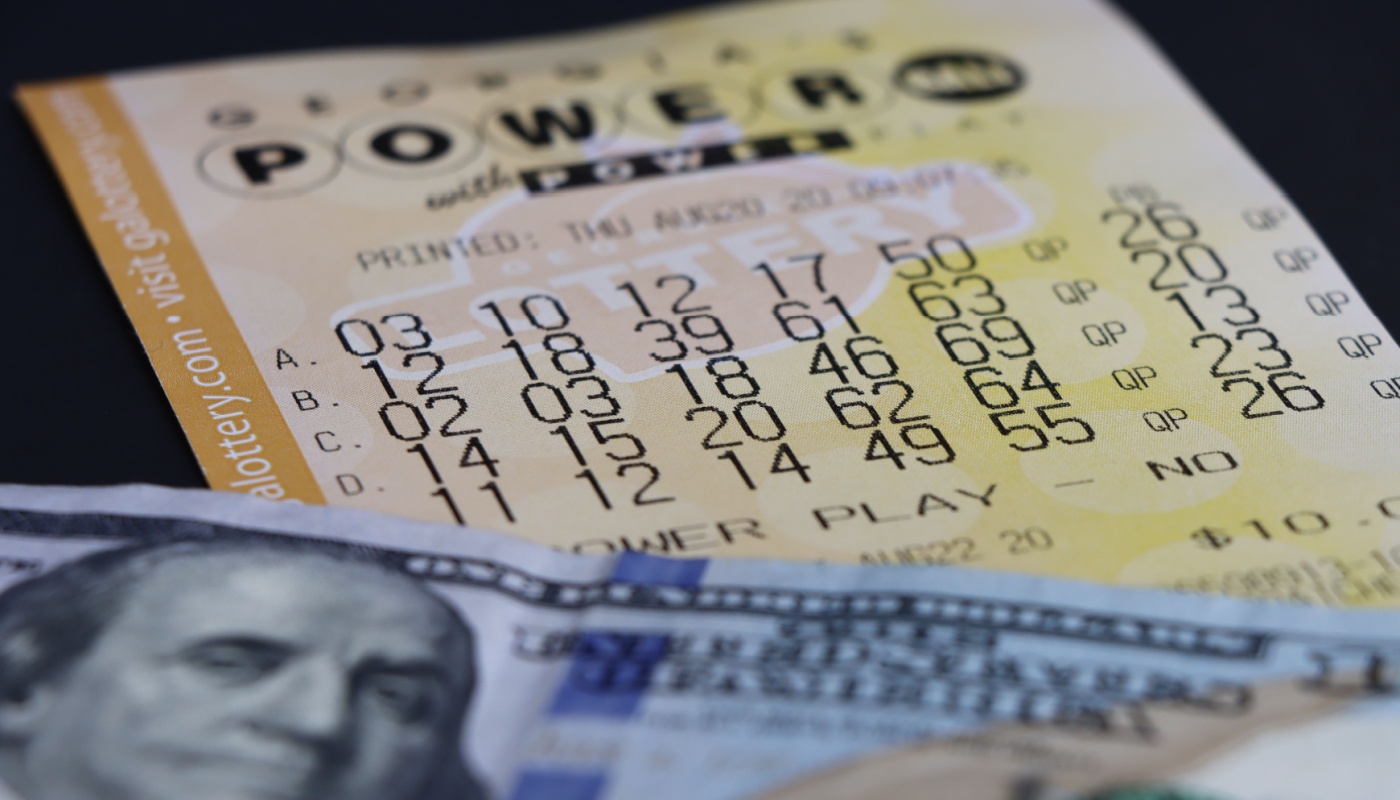
News writer
State lotteries are a great way to provide entertainment for players. Lotteries give these players the chance to win life-changing money at a low cost (I mean, this recent Missouri Lottery player turned spare change into a $1 million prize)!
Even with all those shiny lights and big jackpots, there still is a very crucial issue to address: player responsibility. State lotteries are aware of the potential for gambling addictions and their related effects. Because of this, they promote responsible play through a variety of initiatives.
In this article, we will take a look at the steps lotteries are taking to encourage responsible gaming, emphasizing the importance of Problem Gambling Awareness Month and keeping minors out of the game.
The lottery's dual nature
State lotteries work in a special industry where they have to strike a balance between encouraging safe gambling and generating revenue. Through ticket sales, lotteries support a range of public services, including infrastructure and education.
Nevertheless, encouraging individuals to purchase tickets is a necessary part of this revenue-creation process. Because of this, the effectiveness and sincerity of lotteries' efforts to promote responsible gambling are called into question.
Encouraging responsible play
State lotteries are using many different approaches to encourage responsible gambling. This includes educational campaigns, self-exclusion programs, and partnering with groups that work to prevent gambling addictions.
- Educational campaigns: Many state lotteries are putting big money behind advertising campaigns to inform players about the risks of gambling. These advertisements frequently include phrases like "Play Responsibly" or "Know Your Limits," which are meant to serve as a reminder to players that gambling should be done for fun rather than as a way of generating income. To further amplify these efforts, several governments even declare certain months to be "Play Responsibly Months."
- Self-exclusion programs: For those addicted to gambling, state lotteries provide self-exclusion programs to help. With these programs in place, players can choose to exclude themselves from playing lotteries for a predetermined amount of time. By registering for self-exclusion, players admit they have a gambling issue and are actively working to manage it.
- Collaboration with advocacy groups: State lotteries often work with local advocacy groups and organizations such as the National Council on Problem Gambling (NCPG). The goal of these collaborations is to give those who are impacted by gambling addiction information and assistance. Additionally, they support the education of others on responsible gambling.
Keeping children from playing the lottery
A big part of responsible gambling for these state lotteries is working to prevent minors from taking part in gambling. When minors start gambling at a young age, it can lead to harmful gambling habits down the road. State lotteries take a number of precautions to make sure that children don't participate in gambling, especially with scratch-off tickets, which are frequently given out as gifts around the holidays.
- Strict age verification: It is mandatory for retailers to confirm the age of any customer buying lottery tickets. This typically takes place by verifying the buyer's legal age with a government-issued ID. Retailers who disregard these rules risk severe fines or losing their licenses.
- Awareness campaigns: State lotteries step up their efforts to prevent minors from receiving lottery tickets as gifts over the holiday season. Slogans such as "Lottery Tickets Aren't Child's Play" are frequently used in campaigns to educate adults that lottery tickets are inappropriate presents for kids. These efforts seek to dispel the myth that scratch-off tickets are harmless fun while also bringing attention to the possible dangers of underage gambling.
- Retailer training: State lotteries offer retailer education to make sure they know the value of age verification and the possible repercussions of selling tickets to underage customers. This training covers identifying fake IDs and understanding the legal fallout from non-compliance.
How does Problem Gambling Awareness Month work into the mix?
Problem Gambling Awareness Month (PGAM) is observed in March by state lotteries and gambling organizations nationwide. The goal of this month-long campaign is to increase public awareness of problem gambling and to offer support and services to individuals who are impacted by it.
- Raising awareness: Lotteries conduct massive advertising initiatives to educate the public about the dangers of gambling addiction during PGAM. They share real-life stories from people who have battled gambling addiction as they look to humanize the problem and reduce the stigma attached to getting help.
- Providing resources: State lotteries work with local and national organizations to provide problem gamblers with assistance and resources. This can be anything from self-help tools and counseling programs to hotlines for people to call. Lotteries hope to assist people in controlling their gambling habits and, if necessary, get professional assistance by offering these tools.
- Engaging communities: As part of its community outreach programs, PGAM organizes seminars, workshops, and events to educate the public about responsible gambling. These events are hosted by advocacy groups and lotteries. These gatherings offer a space for open discussions regarding gambling addiction and the importance of getting help.
Responsible Gaming Education Month
In 1998, the American Gaming Association created a whole month to highlight the industry's responsible gaming education efforts. The AGA and its members work to promote gaming literacy and consumer education, in addition to elevating employee training and working with partners to advance their understanding of responsible gambling.
Responsible Gaming Education Month takes place every September and it gives state lotteries a chance to put a spotlight on their responsible gambling efforts. Some of these efforts include the Michigan Lottery reminding players about the availability of prevention, treatment, and recovery services in the state. They also work to remind players about their National Problem Gambling Helpline, which is available free for players 24 hours a day, seven days a week.
For the Hoosier Lottery, they support the efforts of Responsible Gaming Education Month through a variety of internal and external initiatives, including responsible gaming messaging for their employees and for the public via social media and appearances at local events.
How effective are these responsible gambling initiatives?
Although state lotteries invest a large amount of money and resources into promoting responsible gambling, the success of these programs is frequently questioned. Because lotteries rely on ticket sales for their revenue, some believe that they have a huge conflict of interest. This conflict of interest makes people question their sincerity when promoting responsible gambling.
- Mixed outcomes: Research on how well responsible gambling policies work has produced a variety of results. According to some research, self-exclusion initiatives and educational efforts can reduce the negative effects of gambling. It's still unknown, though, how these initiatives will ultimately impact the number of cases of compulsive gambling.
- Public perception: There are differences in how the general public views state lotteries' attempts to promote responsible gambling. While some consider these programs as sincere attempts to minimize the harm, others see them as symbolic gestures meant to satisfy critics and authorities.
- Continuous improvement: State lotteries keep improving their responsible gambling initiatives in spite of these obstacles. This includes implementing new technology, such as online self-exclusion programs, and growing partnerships with advocacy groups to guarantee a more all-encompassing strategy for problem gambling.
Examples of some state lotteries' responsible gambling initiatives
In order to have a better understanding of how state lotteries are implementing these responsible gambling initiatives, we wanted to look at a few states and what their efforts have entailed.
- Massachusetts Lottery: With its "GameSense" initiative, the Massachusetts Lottery has taken the lead in encouraging responsible gambling. With this initiative, players can get resources for people in need of help, advice on setting and sticking to limits, and information about gambling odds. Advisors from GameSense are on hand at different locations to provide assistance and support.
- New York Lottery: The New York Lottery has put in place a thorough, responsible gambling policy that includes self-exclusion choices, age verification procedures, and educational initiatives. To encourage responsible gambling, its "Responsible Play Partnership" works with a range of partners, such as retailers and neighborhood organizations.
- California Lottery: The California Lottery has put in place an excellent foundation for responsible gambling, focusing on support, education, and prevention. Its "Play Responsibly" campaign consists of PSAs, school outreach initiatives, and collaborations with mental health organizations.
Obstacles and prospects for the future
There are still a number of obstacles in the way of state lotteries' attempts to encourage responsible gambling. It will take continued creativity, research, and cooperation to overcome these obstacles.
- Technological advancements: The development of mobile and internet lottery platforms brings further obstacles to responsible gambling. It is important to ensure the effective implementation of age verification and self-exclusion processes in the digital space. In order to keep an eye on and control internet gambling, lotteries need to make investments in cutting-edge technology.
- Research and data: State lotteries need to do more thorough research into the effectiveness of responsible gambling programs. It is recommended that state lotteries develop partnerships with academic institutions and research groups in order to collect and evaluate data from these programs. Future strategies and the identification of best practices can be influenced by this research.
- Public engagement: Establishing a culture of awareness and prevention of responsible gambling requires public participation in conversations about the topic. State lotteries need to keep organizing community events, seminars, and workshops to promote open conversations about gambling addiction. Including the families and former problem gamblers in these conversations can bring valuable insights and personal perspectives.
- Policy and regulation: To guarantee that state lotteries follow responsible gambling guidelines, strong regulatory frameworks are needed. Legislators and lotteries must work together to create and implement rules that safeguard participants, especially children and vulnerable populations. Routine audits and reviews should be completed to keep this accountability and compliance in place.
Conclusion
While state lotteries are an important source of funding for public services, they also have an obligation to promote responsible and safe gambling. Lotteries work to reduce the risks related to gambling through partnerships with advocacy groups, self-exclusion initiatives, and educational efforts. One of the most important aspects of these initiatives is keeping children from participating in the lottery and observing Problem Gambling Awareness Month.
It's clear that state lotteries understand the importance of player responsibility, even though the success of these programs is debatable. Lotteries must continue to be vigilant in their efforts to encourage responsible play and help people who are affected by gambling addiction as the gambling industry changes. The ultimate goal is to make sure that players' wellbeing is not jeopardized by the thrill and amusement of lottery games.
State lotteries may make the gaming experience safer and more pleasurable for all players by striking a balance between their revenue-generating goals and their dedication to responsible gambling. As we learn more about gambling addiction, we can only hope that more thorough and efficient regulations will be developed to better protect people from the possible negative effects of gambling.
Enjoy playing the lottery, and please remember to play responsibly.
















Comments